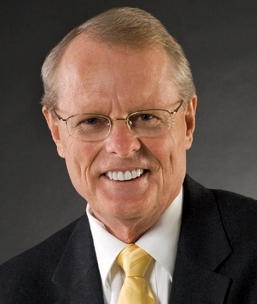“Money may not be too important to you, pal; but, to me, it ranks right up there with oxygen.
Ruth Gordon
Former Actress
It’s a funny line – and there’s a certain ring of truth to it; after all, no one wants to live a life of worry and insecurity in their later years; But, rich and wealthy are two different things. While both are possible, I think most people would say that freedom from worry, coupled with living a full and rich life, would rank pretty high.
So, what does constitute success? Based on my noticing what smart people do, here are my Ten Tips:
#1 – Money really doesn’t buy happiness.
Most young people don’t buy into this but most of the rest of us begin to understand it more as time goes by. You really don’t need $50 gazillion! In fact, many people begin to get rid of a lot of ‘baggage’ as they get older. There’s nothing wrong with simplifying your life and many are indeed happier!
#2 – Wealth accumulation is more a result of your choices than your investments.
W. Clement Stone started out as a 7-year-old selling newspapers on a street corner to help support his single mother and younger brothers. He ended-up as Chairman of Combined Insurance Companies of America and gave millions to charity from his own pocket. He once said, “Successful people are those who’ve acquired the habit of doing the things unsuccessful people don’t like to do.”
He knew that luck was the result of hard work. Most successful people know it’s not how much you make; but how much you KEEP that makes you wealthy. While others spend lavishly on cars and vacations, the key to true riches is to pay yourself first and make your money work for you.
#3 – Plan for success or plan for failure – There’s no third choice.
Those who fail to plan are planning for failure. Every successful business owner or executive knows that a plan kept in your head is worthless. Plans must be in writing. Not that paper makes it work; but, it’s a reflection of the person who is serious enough to actually complete the process. Good plans identify where you are, where you want to go, and how you want to get there. It’s no different for individuals. You are the President and CEO of YOU, Inc. Success or failure depends on your planning and your management.
#4 – Begin saving early.
My dad told me when I was ten, “Jim, I know you won’t do this; but if you save just 10% of everything you ever earn, you’ll never have to worry about money as long as you live. He was right twice.
#5 – You can’t enjoy retirement if you’re dead.
Take care of yourself. Live a balanced lifestyle with time for exercise and fresh air. Don’t neglect medical check-ups! Jack Nicklaus won 18 professional majors and finished second 19 times; that’s 37 times being 1st or 2nd in majors!!! – Match THAT, Tiger! But, that’s only half the story. He did it playing a limited schedule for most of his career, playing as few as 15 events in some years! While other golfers, like Lee Trevino who was in the field almost every week, would question how many he would have won if he’d played full time, Nicklaus always answered by saying it was the time-off that kept him fresh, up, and wanting to play! He said that each year he’d block-out his calendar in this order: Family time got blocked first. Then, the remaining time was blocked for business and golf, prioritizing the events and projects. That way, he said, he never got `burnt out’. Not a bad lesson.
#6 – A quality life is surrounded by quality people.
If your parents were like mine, they said, “If you want to know who you are, just look around and see who you’re with.” Positive people don’t hang around with negative people. Honest people don’t associate with dishonest people. In short, quality people enhance your life with interests, ideas, and positive attitudes and influences. Negative people only sap your strength; and do little to enhance your well-being.
#7 – Invest like a millionaire
Ask any 10-year old, “Would you like to invest like a millionaire or a poor person. Don’t worry, you’ll get the correct answer. Unfortunately, the parents all too often continue to invest like poor people. What’s the difference? A millionaire will carefully choose an advisor who has no conflict of interest, then, with the advisor, create a `business plan’ and hire institutional managers to follow a strict investment discipline, always taking a long term view keeping costs low and expectations realistic. The poor person is likely to find a broker and buy some “hot” individual stocks, thinking the broker has some special insight that everybody else on Wall Street is too dumb to recognize. Even worse, the poor person might think HE has some special sight Wall Street lacks and does his own trading, hoping to hit the jackpot. I actually know of a family that lost their life savings and their home because the husband was convinced the system he’d picked up in a seminar would work. Even after losing everything, he told me, “Jim, I was just getting it! If I only had a little more money to work with, it would have worked.” I could only shake my head. Who did he think he was talking to?
#8 – Keep active – Mentally and physically
Those who stay mentally and physically active – and around people who do the same (see #6) – live longer and stay healthier. Whether it’s a hobby – or three – or reading and socializing while taking walks, the more active your mind and body are, the greater your quality of life.
#9 – Forget the word `retirement’
Some of the happiest people I know may have quit their formal jobs; but virtually all would have little trouble making a list of 100 things they would love to do if they had the time: Books to read, places to go, people to see, etc. They know tomorrow is promised to nobody. My dad and all his friends `retired’ to Florida back in the early 1970s; but none of them actually retired. All of them were busier down there than they ever were during their ‘working’ years. One of them, a `retired’ prominent radiologist from Johns Hopkins, even continued reading x-rays that were sent overnight to him on a daily basis! My dad, a `retired’ electrical engineer, began writing articles for dozens of industry publications. Even Warren Buffett, who just turned 80, can’t see himself doing nothing.
#10 – Giving back
Smart people already know this: You probably have something to give you haven’t given yet! It might be money. It might be time or volunteer work. It might be a helping hand. One of my dad’s fellow `retirees’ got involved with Meals on Wheels and truly enjoyed it! You might enjoy being around young people through little league baseball or helping area youth through involvement in a civic organization. It might be as simple as the gift of listening.
Jim Lorenzen is a CERTIFIED FINANCIAL PLANNER® and an ACCREDITED INVESTMENT FIDUCIARY® in his 21st year of private practice as Founding Principal of The Independent Financial Group , a fee-only registered investment advisor with clients located in New York, Florida, and California. IFG provides fee-only financial and retirement planning, as well as investment advisory and wealth management services for individual investors. IFG also does not provide tax or legal advice. Content contained herein represents the author’s opinion and should not be regarded as investment advice which is provided only to IFG clients upon completion of a written plan.




